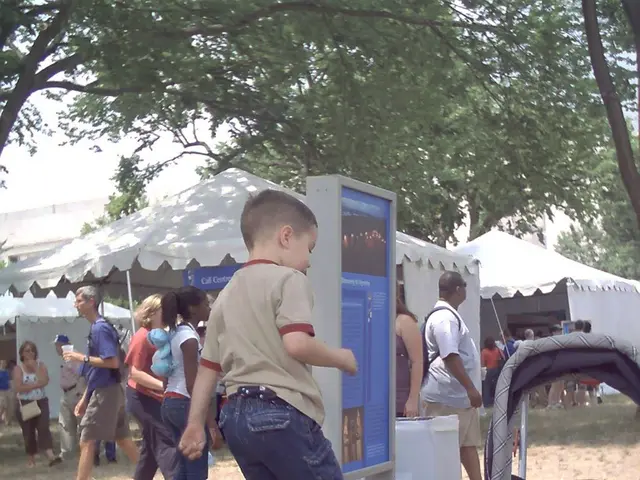Celebrating Earth Day Matters: Exploring the Reason and adopting Eco-Friendly Habits
The history of Earth Day dates back to the environmental awakening of the 1960s, culminating in its first celebration in 1970 and evolving into a major global event over the decades.
The environmental movement gained momentum in 1962, following the publication of Rachel Carson’s influential book, *Silent Spring*. This groundbreaking work raised public awareness about pollution and its health impacts, sparking an initial environmental consciousness that led to Earth Day.
In 1969, a significant environmental incident in the U.S. and the activism of Wisconsin Senator Gaylord Nelson led to the organization of the first Earth Day. The event aimed to draw attention to environmental issues and promote policy change.
On April 22, 1970, the **first Earth Day** was celebrated in the United States, coined by advertising writer Julian Koenig. It mobilized millions of Americans to participate in rallies and events aimed at increasing environmental awareness. This inaugural event was instrumental in spurring the creation of the U.S. Environmental Protection Agency (EPA) later that year and inspiring landmark environmental legislation.
Following the first Earth Day, environmentalism became a key national concern, leading to laws such as the Clean Air Act and Clean Water Act. The event continued annually, growing in scale and impact throughout the 1970s.
In 1990, Earth Day became a **global initiative** led by Denis Hayes, who organized worldwide campaigns that engaged 200 million people across 141 countries. This expanded the movement significantly beyond the U.S.
Today, Earth Day is celebrated **annually in about 190 countries**, with the Earth Day Network coordinating over 20,000 partners and mobilizing more than a billion participants in various environmental activities year-round. The event now covers a wide range of issues including climate change, conservation, pollution, and sustainability.
Starting a conversation in one's community about environmentally unfriendly practices and working towards change can lead to a greener community. Making small and sustainable changes in daily life can significantly decrease one's carbon footprint. The conversation around greener living is being opened up in celebration of Earth Day and Earth Month.
Creating a community garden is a big way to start a greener community. Container Garden Kits are available for those interested in starting their own garden. Companies like Gardenuity take Earth Day and Earth Month initiatives seriously and partner with others who share similar interests and values.
As we celebrate Earth Day, it's important to remember that it's more than social media posts or one-day activities; it's about understanding why it's significant and taking action to make a change. The Earth is suffering from prolonged exposure to massive amounts of pollution, and if no significant change is made to human living practices, the Earth will continue to diminish.
Yet, there is hope. Spending time outside in one's garden can provide inspiration and tranquility. Earth Day celebrations can be incorporated into daily life in many easy ways, such as reducing meat consumption, carpooling, biking, and taking shorter showers. By taking these steps, we can all contribute to a greener future.
For more information about adopting a greener lifestyle, consider reading "Tips for a Greener Home". Let's continue the conversation and work together to create a sustainable future for our planet.
- The environmental awareness raised by Rachel Carson's book, Silent Spring, influenced the birth of environmental science and climate change discussions, playing a crucial role in the evolution of global sustainable living.
- As Earth Day continues to grow each year, the focus expands beyond annual celebrations, encourages individuals to adopt sustainable practices at home and in their lifestyles, such as reducing meat consumption, carpooling, and conserving water.
- In line with Earth Day Network's initiatives, companies like Gardenuity are taking significant steps towards promoting environmental science, offering solutions like Container Garden Kits to help communities start their journey towards greener living, and even partnering with organizations who share similar values to foster a sustainable future.




